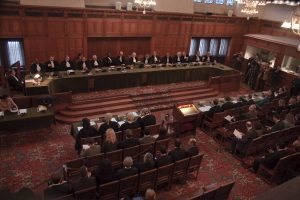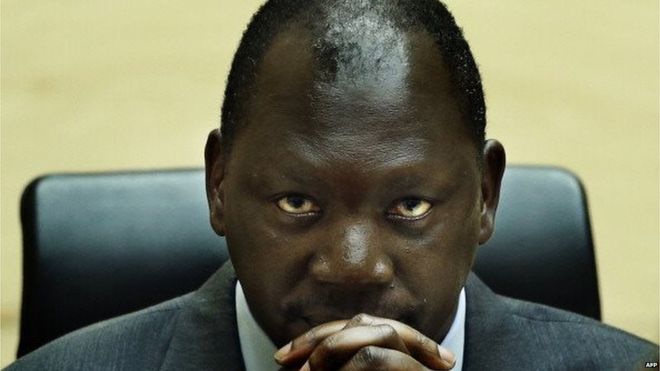In a first, the International Criminal Court has ordered the convicted warlord Germain Katanga to pay damages to his victims. The reparations are for 297 victims of an attack in the Democratic Republic of Congo in 2003. An independent charity is expected to pay some of the money, as Katanga is penniless and without assets.

After fourteen years of campaigning, rights groups on Friday gave a sigh of relief when the International Criminal Court in the Hague delivered its first-ever order for financial reparations to victims of war crimes.
“The decision is hugely significant,” Juergen Schurr, Head of Law and Policy at the human rights organisation Redress, told RFI.
“It comes about fourteen years after the brutal attack, and so it’s long overdue that victims of that attack do receive some form of tangible justice.”
The devastation caused by the 2003 attack on Bogoro village was total: Around 200 civilians were murdered, many others mutilated and women and girls forced into being sex slaves by the men of former warlord Germain Katanga.
“The damage was so colossal that no one can repair this 100%,” Alain Uaykani, a former child soldier with a rival warlord at the time, told RFI by phone from Kinshasa.
Not forgotten
“If you go to Bogoro, this is an area that almost disappeared off the map. So in terms of justice, this reparation is significant because it means the victims have not been forgotten.”
In total, the court calculated that the survivors had suffered $3.75 million (around 3.5 million euros) in damages. Of this amount, it found that militia leader Germain Katanga was personally responsible for just under 1 million euros.
“In deciding what reparations to award, the chamber really relied on the needs that were expressed by the victims,” Oriane Maillet, Associate Public Affairs Officer for the International Criminal Court told RFI.
“It also consulted the defence and they decided that two types of reparation should be awarded to the victims: on the one hand individual reparation but also collective reparation consisting of long-term projects, focusing on things like support for housing, income activities, education and psychological support.”
In addition to the collective damages, each victim was awarded a symbolic amount of $250 (around 230 euros) in compensation.
While not intended to compensate the victims entirely, the court said it was “a symbolic amount which would provide meaningful relief to the victims for the harm they suffered.”

